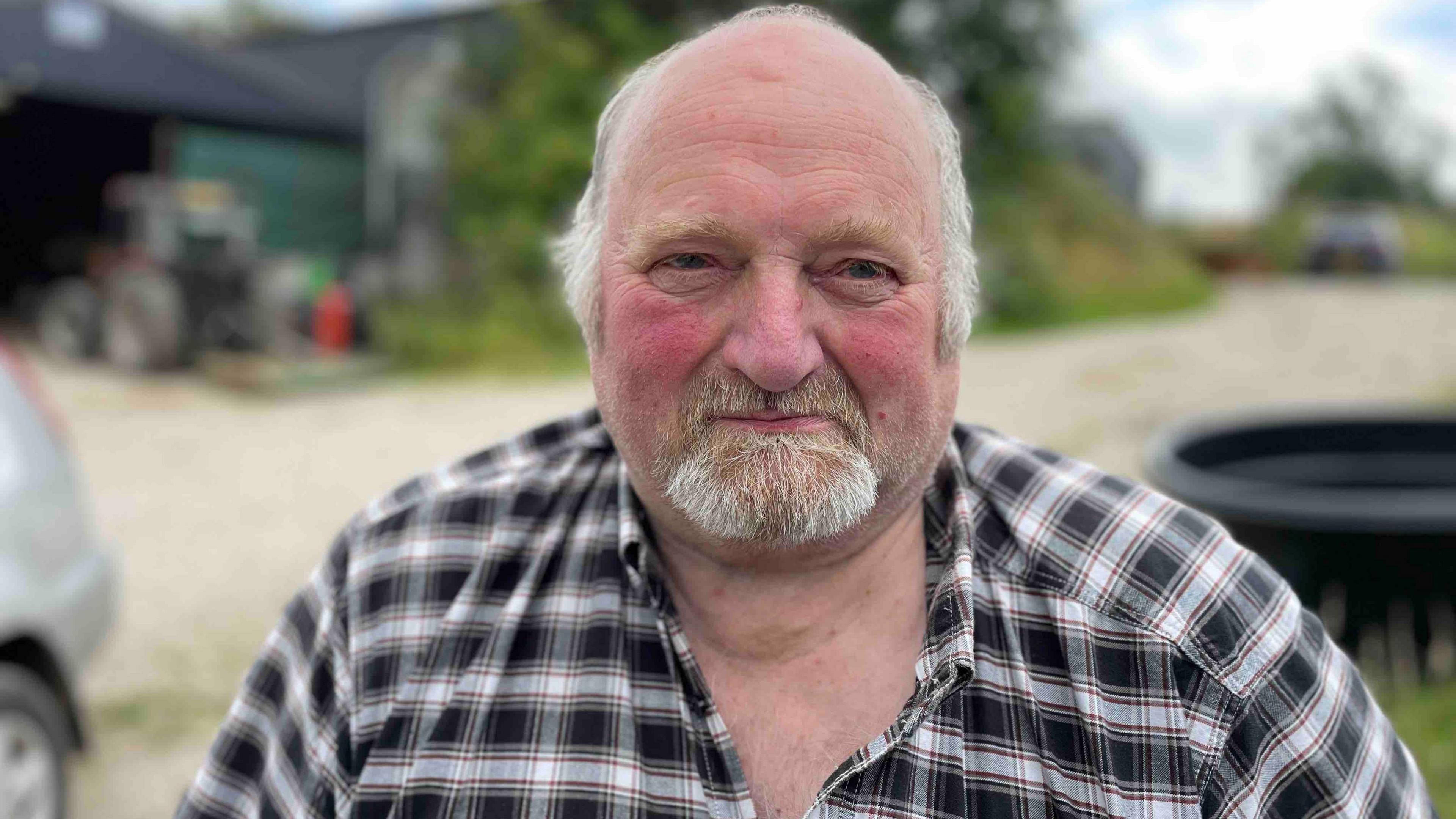Farmers plead for more funding to help tackle rural crime
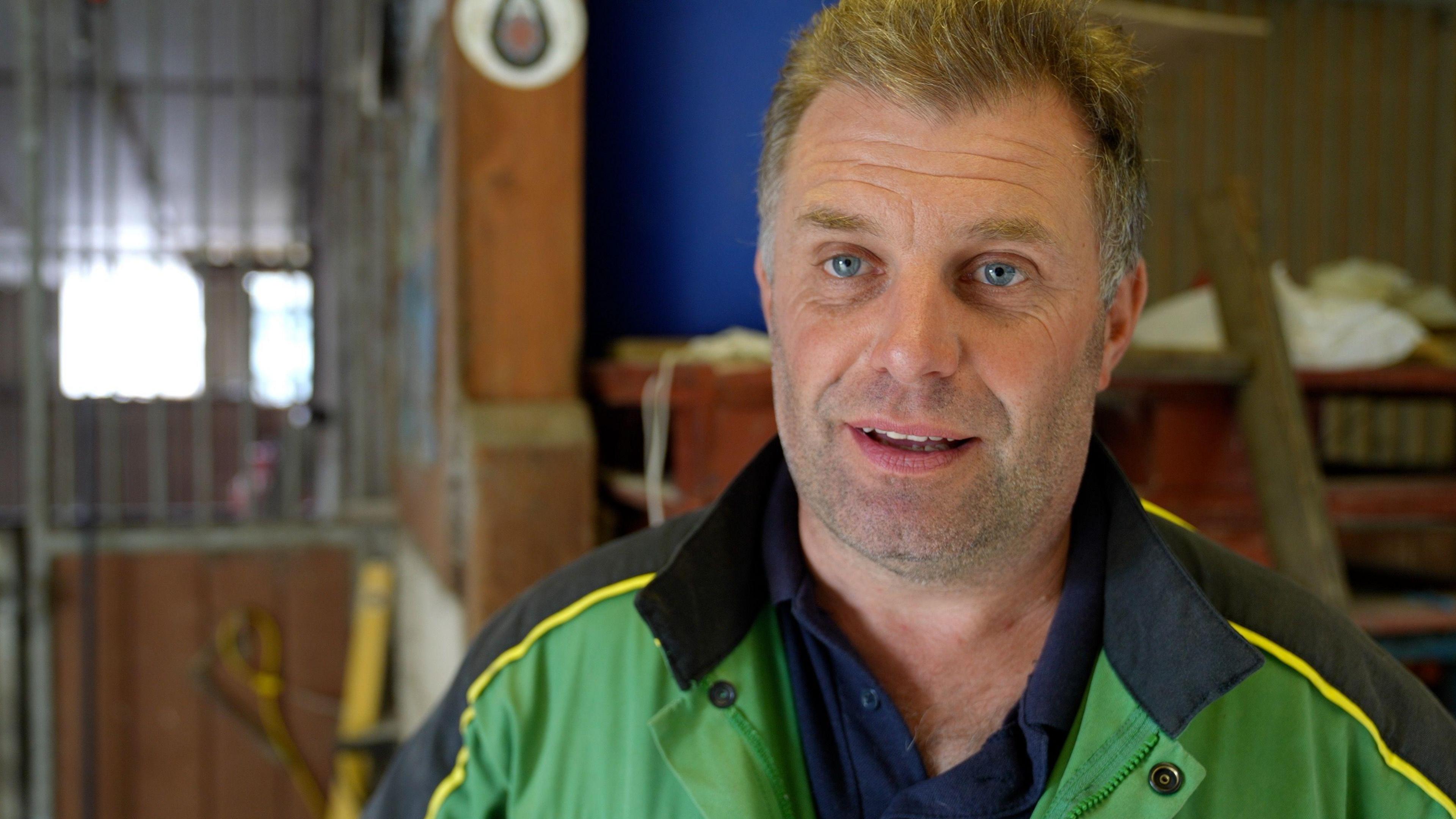
Henry Moreton has "doubled security" at his farm after recent thefts
- Published
Farmers are calling for more resources to be put into the fight against rural crime following a surge in thefts.
The National Farmers Union said the issue affected farmers' lives and "they don't feel safe".
Henry Moreton, who farms in Lincolnshire, said the government needed to back the police "and understand it's a very small constabulary in a very big county".
A spokesperson for the Home Office said it was "backing the fight against rural crime with tougher laws on farm theft, new powers under the Equipment Theft Act, and more than £800,000 in funding this year for the National Rural Crime Unit and National Wildlife Crime Unit".
Mr Moreton, who farms in Bucknall, near Woodhall Spa, has had two garden tractors stolen this year.
He has increased security as a result, but he said more money was needed to protect rural communities from organised crime.
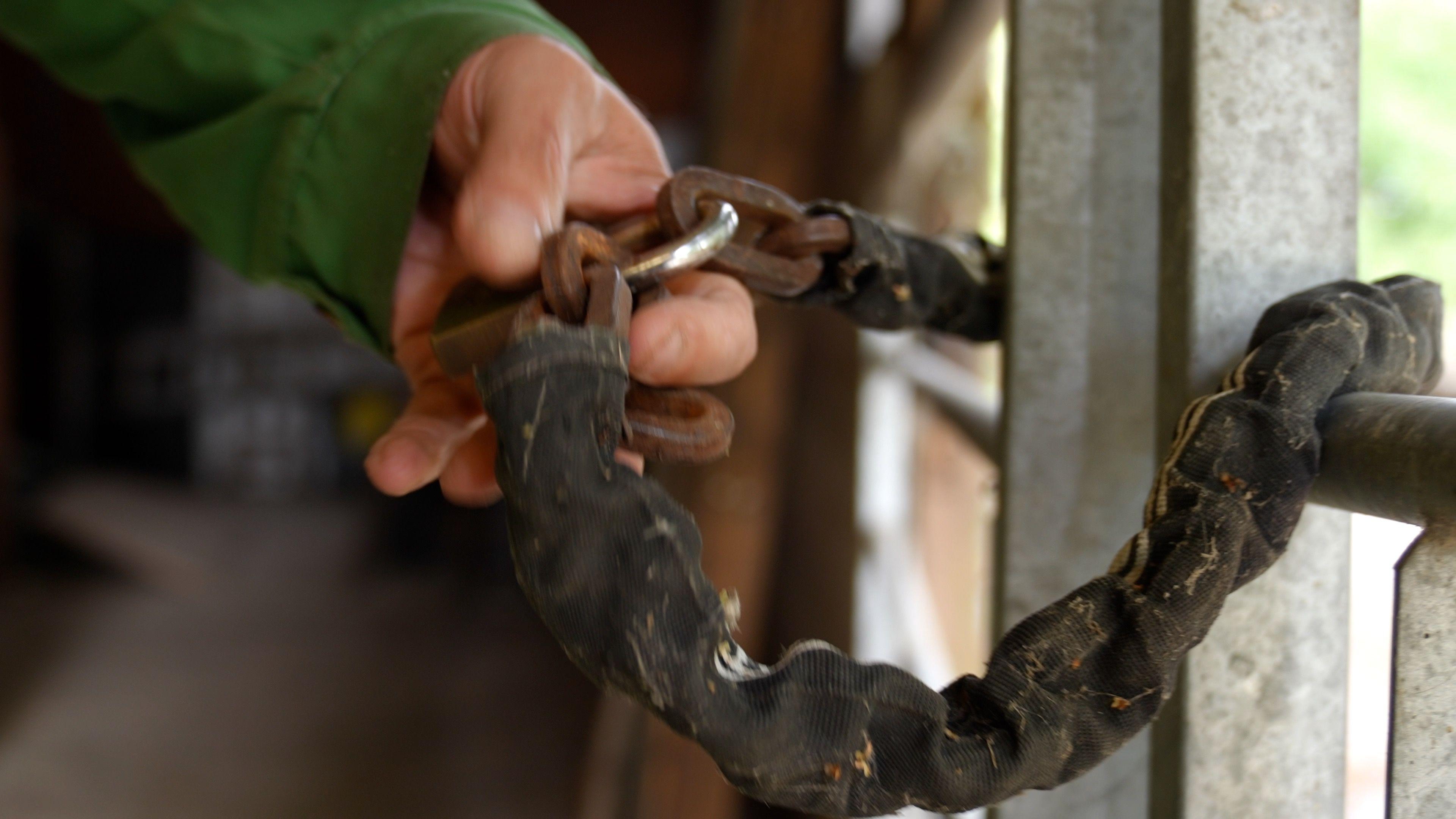
Thieves used an angle grinder to break into Henry Moreton's barn
He believes criminals scouted out his farm in advance of the thefts.
"They approached from around the back of the yard, dodging all the security cameras," he said.
"They'd obviously canvassed the place first, because they cut through the chain with an angle grinder, and that's a hardened chain."
Mr Moreton, who is the NFU's county chairman, said the impact of crime was not just the cost of the stolen equipment or the increase in insurance premiums that followed but the disruption it caused to farmers' day-to-day work.
Lincolnshire is responsible for providing about 12% of England's total agricultural production, external, and almost a third of the country's vegetables.
It's why Mr Moreton believes the government should be doing more to focus on food security and isolated farming communities by increasing rural police funding.
"We really need to back our local police force," he said.
"The government needs to back them and understand it's a very small constabulary in a very big county.
"I know it's hard, but just get the funding right for Lincolnshire's constabulary."
The Home Office spokesperson said: "Lincolnshire Police is receiving £174.5m in funding this financial year to help strengthen neighbourhood policing and crack down on rural crime – a 6.2% increase on the previous 12 months."
They added: "We have also worked with the National Police Chiefs' Council to develop a comprehensive new Rural and Wildlife Crime Strategy, setting out a clear plan to tackle the unique challenges faced by rural communities, from fly-tipping to livestock theft."
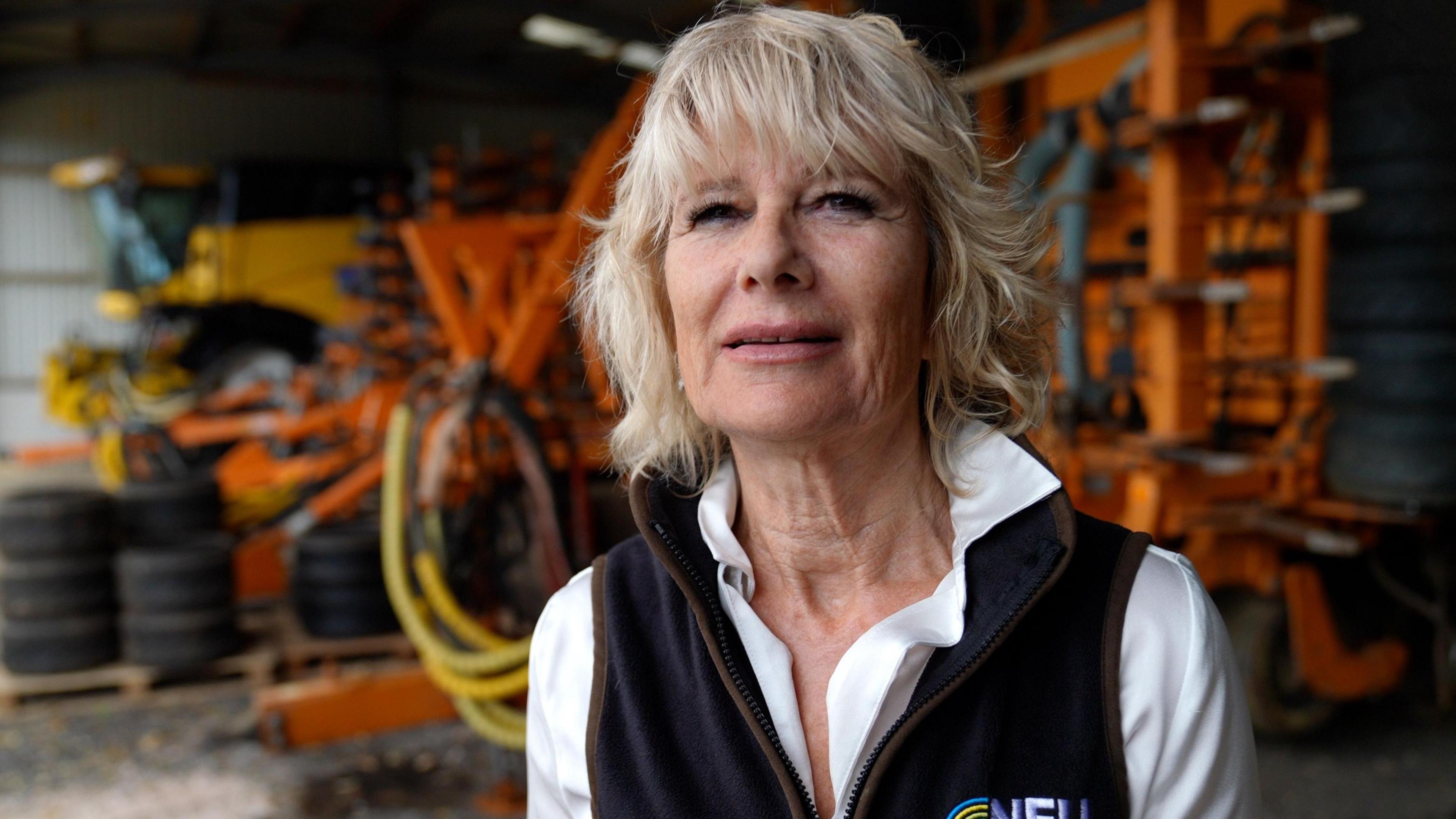
Rhonda Thompson is the NFU's county adviser for Lincolnshire
Rhonda Thompson, the NFU's county adviser for Lincolnshire, said: "The biggest problem we've got is it is such a vast county... it isn't just about the financial impact, it's what it does to people.
"It affects their lives, they don't feel safe. And if [something's] been stolen, you've then got to wait to get another piece in, you've got insurance premium hikes, all of that. It's unacceptable."
With the impact of farm thefts running into millions of pounds, the NFU is encouraging farmers to install more security measures. But it all comes at a cost.
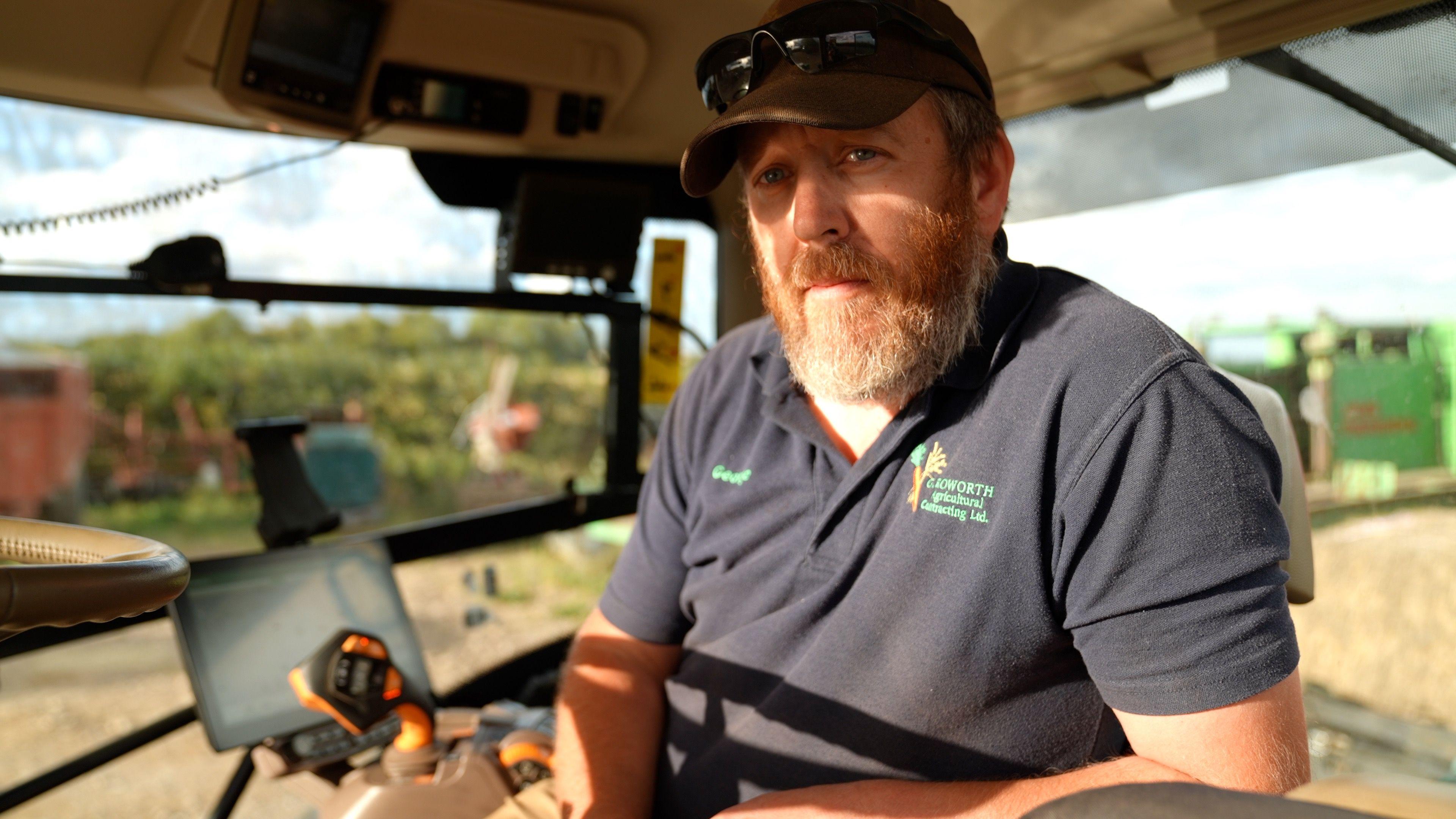
Farm contractor George Roworth has had expensive equipment stolen
For George Roworth, a farm contractor from near Gainsborough, the reality of farm theft is all too familiar.
He's had two expensive GPS systems stolen in the past two years, each worth tens of thousands of pounds.
The units and their components are hi-tech, integral parts of modern farming. They enable accurate planting, fertilising and harvesting by precisely guiding machinery and tractors across fields to improve crop yields and efficiency.
But they are small units and can be easy to steal, which is why Mr Roworth's farm is now enclosed with barriers, a concrete wall and security cameras.
"It's the frustration and downtime, and then the increase in our insurance premiums that seems to just be one thing after another in this current climate," he said.
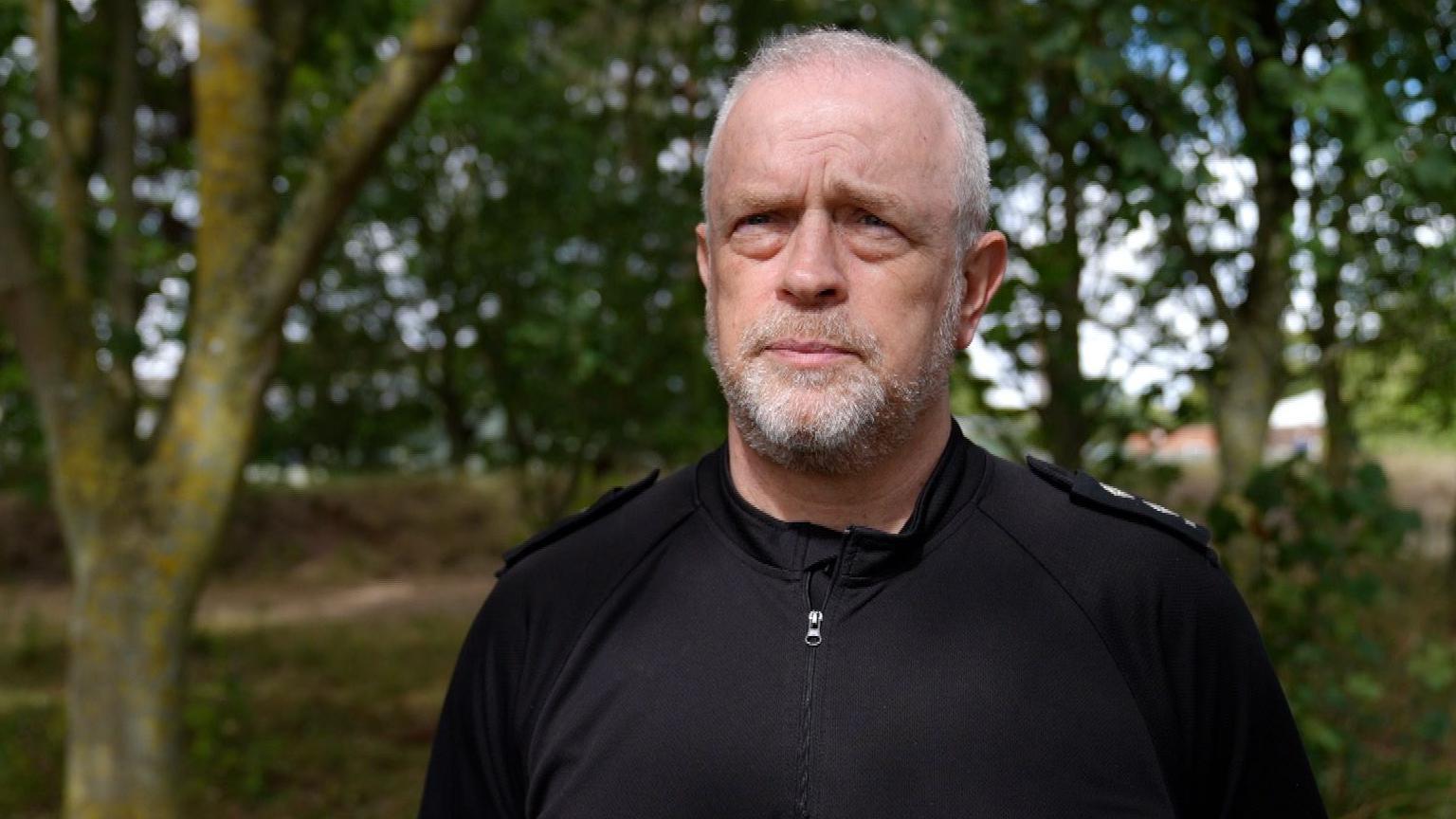
Insp Chris Davis says criminals are targeting high-value items
This year's Rural Crime Report published by NFU Mutual, an insurer, found that the cost of rural crime fell across the country in 2024, but still amounted to nearly £45m a year.
It followed an annual 13.3% rise in Lincolnshire the year before, with farmers in the county suffering losses of £2.5m, external – the second highest county figure in the country.
Lincolnshire Police has acknowledged that there has been a high volume of thefts in the south of the county in particular, with stolen items including quad bikes, all-terrain vehicles, ride-on lawnmowers, trailers, caravans, GPS systems and power tools.
The force is encouraging farmers to keep precise records of any high-value items, including taking photographs of unique or identifiable features.
It has launched a campaign, external to encourage people to mark, record and secure tools and vehicles amid concerns that organised gangs from outside the county are preying on Lincolnshire's isolated communities.
Insp Chris Davis is part of the force's rural crime action team, which last year recovered £300,000-worth of stolen equipment.
He said: "We need to identify the item belonging to a victim, then we can record statements from them and take on a prosecution."
"If we can have multiple items which have been stolen, it has a significant impact when a case goes through the criminal justice system."
Listen to highlights from Lincolnshire on BBC Sounds, watch the latest episode of Look North or tell us about a story you think we should be covering here, external.
Download the BBC News app from the App Store, external for iPhone and iPad or Google Play, external for Android devices
Related topics
Related stories
- Published21 June
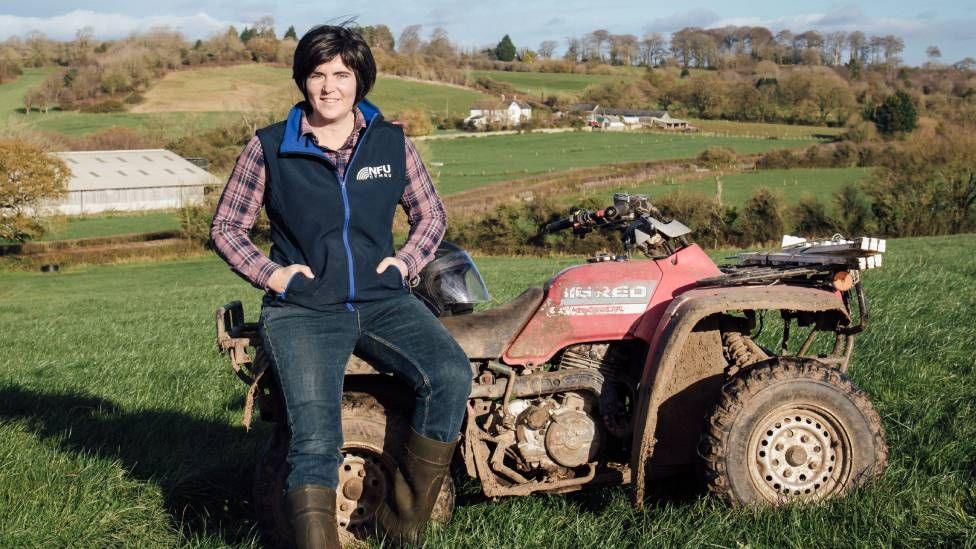
- Published21 June
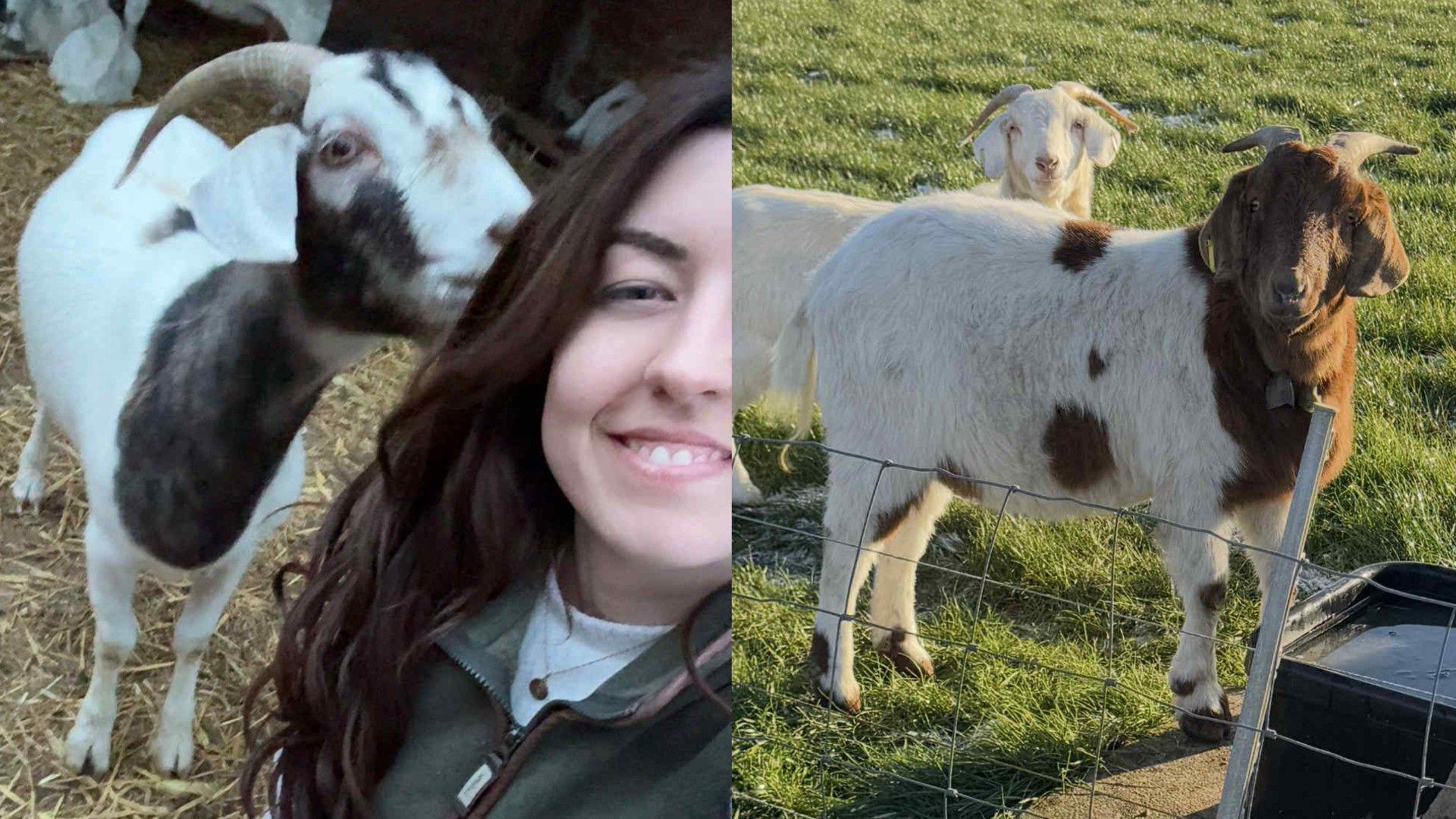
- Published7 August
